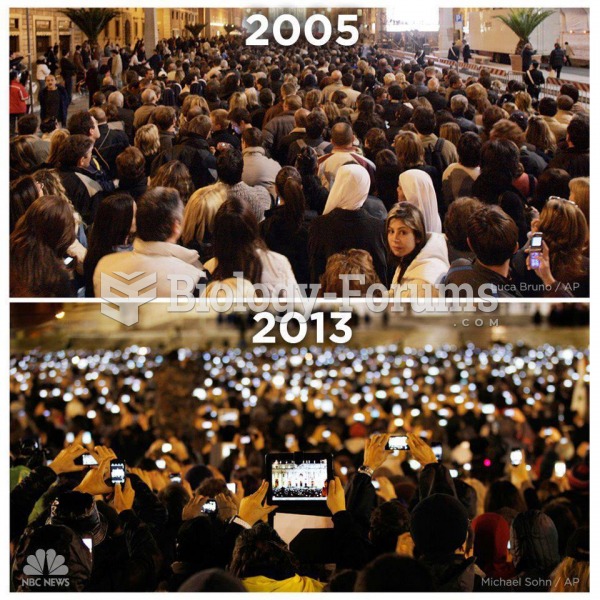|
|
|
In ancient Rome, many of the richer people in the population had lead-induced gout. The reason for this is unclear. Lead poisoning has also been linked to madness.
Medication errors are more common among seriously ill patients than with those with minor conditions.
Nearly 31 million adults in America have a total cholesterol level that is more than 240 mg per dL.
In the United States, an estimated 50 million unnecessary antibiotics are prescribed for viral respiratory infections.
About 60% of newborn infants in the United States are jaundiced; that is, they look yellow. Kernicterus is a form of brain damage caused by excessive jaundice. When babies begin to be affected by excessive jaundice and begin to have brain damage, they become excessively lethargic.







